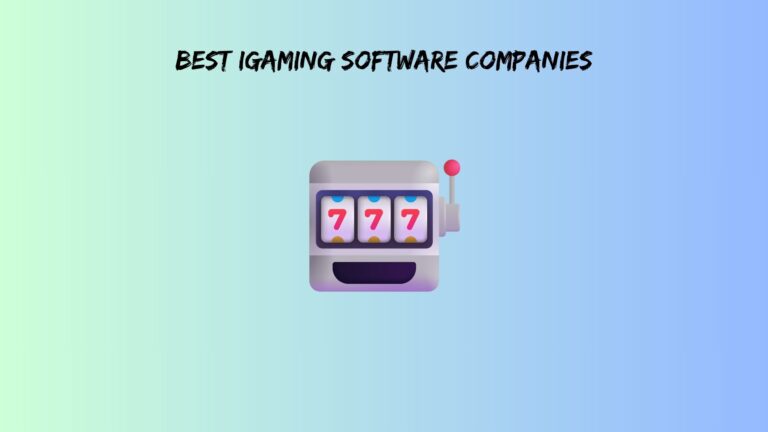6 Best Cloud Phone Systems for Startups in 2026 (Ranked + Reviewed)
Picture this: Your startup just landed its first major client call from New York. You’re scrambling to answer on your personal iPhone while your co-founder frantically tries to join from a coffee shop in London. The call drops twice, the audio sounds like you’re underwater, and you just blew a $50K deal because you couldn’t afford a “real” phone system.
Here’s the thing about the best cloud phone systems for startups: they’re not just cheaper than traditional phones, they’re specifically built for the controlled chaos of startup life. While enterprise reviews focus on features you’ll never use, this guide ranks systems based on what actually matters when you’re growing from 3 to 30 employees overnight.
The Startup Communication Nightmare
Traditional phone systems want you to predict the future. How many lines? What features? Where will your team be in 12 months? Meanwhile, you’re trying to figure out if you’ll survive the next 12 weeks.
Enterprise phone systems cost $40-60 per line monthly, require expensive hardware, and take weeks to modify. Your startup needs something that works today but scales tomorrow. Every dollar counts when you’re stretching the runway, yet professional communication can’t be negotiated.
Remote teams make everything worse. Traditional systems assume everyone sits in the same building, using desk phones like it’s 1995. Modern startups have developers in different time zones, sales reps working from cars, and founders juggling client calls from airport lounges.
Cloud phone systems solve these problems by eliminating hardware, offering flexible pricing, and working anywhere with internet. The best cloud phone systems for startups understand that your needs change weekly, not yearly.
How We Ranked These Cloud Phone Systems
Forget enterprise feature lists that read like phone book entries. Startups need different evaluation criteria focused on speed, flexibility, and budget reality.
Onboarding Speed: Can you be live in 30 minutes? When you’re launching tomorrow, setup time matters more than advanced features you’ll never use.
Pricing Transparency: Hidden fees kill startup budgets. The best cloud phone systems for startups show exact costs upfront, no surprises at month-end.
Mobile Reliability: Your team works everywhere. Systems that fail on mobile apps fail your startup entirely.
Integration Ecosystem: Startups live in connected tools. Systems that play nice with Slack, CRM, and project management tools eliminate workflow friction.
Growth Scalability: Adding users shouldn’t require IT degrees or budget meetings. The best systems scale invisibly as your team grows.
Also read: top free task management software for startups
The 6 Best Cloud Phone Systems for Startups Ranked
#1: RingCentral – The Startup Swiss Army Knife

Best for: Startups planning aggressive growth trajectories Pricing: $19.99/user/month (Essentials plan) Setup time: 45 minutes from signup to first call
RingCentral earned top ranking because it anticipates startup growth patterns. While competitors focus on current needs, RingCentral builds for where you’re headed.
Standout features: Native video conferencing eliminates Zoom subscriptions. Mobile app actually works reliably (shocking, we know). Over 200 integrations connect your entire tool stack.
Growth flexibility: Seamless scaling from solo founder to 1000+ employees. User management happens in real-time without service interruptions. International expansion support includes local numbers in 100+ countries.
Startup-friendly perks: Free migration assistance handles the technical headaches. 24/7 support responds to panicked midnight calls (we’ve tested this).
Watch out for: Feature complexity can overwhelm small teams initially. The interface offers everything, which sometimes means finding simple functions takes extra clicks.
Bottom line: The best cloud phone systems for startups need to grow with you. RingCentral delivers professional communication today while building for tomorrow’s scale.
#2: Nextiva – The Customer Experience Specialist

Best for: Customer-centric startups where every call matters Pricing: $18.95/user/month (Essential plan) Setup time: 30 minutes with guided onboarding
Nextiva understands that startup success depends on customer relationships. Features focus on making every interaction count, not just connecting calls.
Standout features: Advanced call analytics reveal customer behavior patterns. CRM integration creates seamless customer experiences. Team collaboration tools keep everyone informed about customer context.
Growth flexibility: Automated scaling adjusts resources based on usage patterns. Billing grows with you instead of requiring plan changes every few months.
Startup-friendly perks: Free number porting eliminates customer confusion. White-glove onboarding includes personal setup assistance.
Watch out for: Limited international calling options restrict global expansion. Advanced features require learning curves that might slow initial adoption.
Bottom line: When customer calls drive revenue, Nextiva’s focus on experience optimization makes every conversation more valuable.
#3: 8×8 – The Remote Team Champion

Best for: Distributed teams and remote-first startups Pricing: $15/user/month (Express plan) Setup time: 20 minutes with instant activation
8×8 was built for remote work before remote work was cool. Features prioritize team connectivity over traditional office communication.
Standout features: Unlimited video meetings support global team collaboration. Global presence provides local numbers worldwide. Team messaging integrates with phone functionality.
Growth flexibility: Flexible user management allows seasonal scaling. International expansion support includes compliance in 50+ countries.
Startup-friendly perks: Free trial includes full features, not limited to demos. No setup fees eliminate surprise costs.
Watch out for: The Interface feels dated compared to newer competitors. Customer support response times vary significantly.
Bottom line: Remote-first startups need communication tools built for distributed teams. 8×8 delivers reliable connectivity regardless of location.
#4: Dialpad – The AI-Powered Innovator

Best for: Tech-savvy startups wanting cutting-edge features Pricing: $15/user/month (Standard plan) Setup time: 25 minutes with AI-assisted setup
Dialpad brings artificial intelligence to startup communication. Features focus on insights and automation rather than basic connectivity.
Standout features: Real-time transcription captures every conversation detail. AI coaching provides feedback on call performance. Voice intelligence analyzes customer sentiment automatically.
Growth flexibility: API-first architecture enables custom integrations. Developer-friendly tools support unique workflow requirements.
Startup-friendly perks: Google Workspace integration works seamlessly. Mobile-optimized interface prioritizes smartphone usage.
Watch out for: AI features require learning curves that might slow adoption. Advanced functionality can overwhelm simple communication needs.
Bottom line: Innovation-focused startups appreciate AI-powered insights that improve communication effectiveness automatically.
#5: Grasshopper – The Solopreneur Special

Best for: Solo founders and micro-teams (1-5 people) Pricing: $14/month (Solo plan) Setup time: 10 minutes with instant activation
Grasshopper focuses on solo founders who need professional communication without enterprise complexity. Features prioritize simplicity over scalability.
Standout features: Virtual phone numbers provide a professional presence. Call forwarding ensures you never miss opportunities. Voicemail transcription delivers messages via email.
Growth flexibility: Limited to 5 users maximum, requiring migration for larger teams.
Startup-friendly perks: No contracts provide ultimate flexibility. Instant activation eliminates waiting periods.
Watch out for: Outgrow quickly as teams expand. Limited features compared to scalable alternatives.
Bottom line: Solo founders need professional communication that doesn’t require technical expertise. Grasshopper delivers simplicity with professional results.
#6: Ooma Office – The Budget Champion

Best for: Bootstrapped startups prioritizing cost control. Pricing: $9.95/user/month (Essentials plan) Setup time: 35 minutes with standard setup
Ooma Office proves that effective communication doesn’t require premium pricing. Features focus on essentials without unnecessary complexity.
Standout features: Free calls to the US/Canada eliminate usage concerns. Virtual fax handles document transmission. Conference calling supports team meetings.
Growth flexibility: Affordable scaling maintains budget predictability. Basic features support growing teams without premium costs.
Startup-friendly perks: No activation fees reduce initial expenses. Free mobile app provides basic functionality.
Watch out for: Limited advanced features restrict growth potential. Basic reporting provides minimal insights.
Bottom line: Budget-conscious startups need communication tools that deliver value without premium pricing. Ooma Office maximizes functionality while minimizing costs.
What Matters: Feature Priorities
Must-have features for startups include an auto-attendant for professional first impressions, call recording for compliance and training, reliable mobile apps for remote work, and voicemail-to-email for opportunity capture.
Nice-to-have features include advanced analytics for growth insights, CRM integration for sales efficiency, video conferencing to reduce tool sprawl, and international calling for global expansion.
Startup dealbreakers include long-term contracts that kill flexibility, complex pricing tiers that create budget uncertainty, poor mobile experiences that frustrate remote teams, and limited integrations that disrupt workflows.
The best cloud phone systems for startups understand that features matter less than reliability. Professional communication builds credibility, but system failures destroy it instantly.
Implementation Strategy for Startups
Week 1 focuses on foundation setup, including number selection and porting, basic user configuration, mobile app deployment, and initial team training.
Weeks 2-3 cover integration and optimization through CRM and tool connections, call routing configuration, analytics setup, and advanced feature exploration.
Ongoing activities include user addition workflows, performance monitoring, feature utilization review, and cost optimization strategies.
Success depends on starting simple and adding complexity gradually. The best cloud phone systems for startups support this evolutionary approach.
Mistakes That Kill Startup Communication
Overbuying features you won’t use for months wastes precious runway. Focus on current needs with growth flexibility rather than theoretical requirements.
Ignoring mobile app quality until it’s too late creates team frustration. Test mobile functionality thoroughly since your team works everywhere.
Underestimating setup time during busy periods creates unnecessary stress. Plan implementation during slower periods with dedicated focus time.
Choosing based on price alone without considering growth needs forces expensive migrations later. The best cloud phone systems for startups balance cost with scalability.
The Verdict: Your Next Steps
Solo founders: Start with Grasshopper for simplicity or Ooma Office for budget-conscious communication.
Small teams (3-10): Choose 8×8 for remote work or Nextiva for customer focus.
Growth-focused startups: RingCentral provides comprehensive scaling or Dialpad offers AI-powered insights.
Implementation timeline: Expect 2-3 weeks for full deployment, including user training, integration setup, and workflow optimization.
The best cloud phone systems for startups aren’t just communication tools – they’re growth enablers. Choose systems that work today while building for tomorrow’s success. Your startup’s communication needs will evolve rapidly, so select partners that understand this reality.
Professional communication shouldn’t consume your runway or complicate your operations. The right cloud phone system becomes an invisible infrastructure that simply works, letting you focus on building your business instead of managing phone systems.
FAQs
Is Zoom Phone cheaper upfront but more costly long-term than Grasshopper?
Zoom Phone is cheaper for solo users, but Grasshopper is more cost-effective long-term for growing teams because it offers a flat monthly rate for unlimited users. While Zoom’s per-user pricing adds up as you hire, Grasshopper’s fixed-price plans provide better value as your business scales.
What’s the best cloud-based phone system for startups that scale quickly?
RingCentral and Nextiva are the top choices for fast-scaling startups because they offer enterprise-grade features like AI-powered analytics and CRM integrations that grow with your team.







